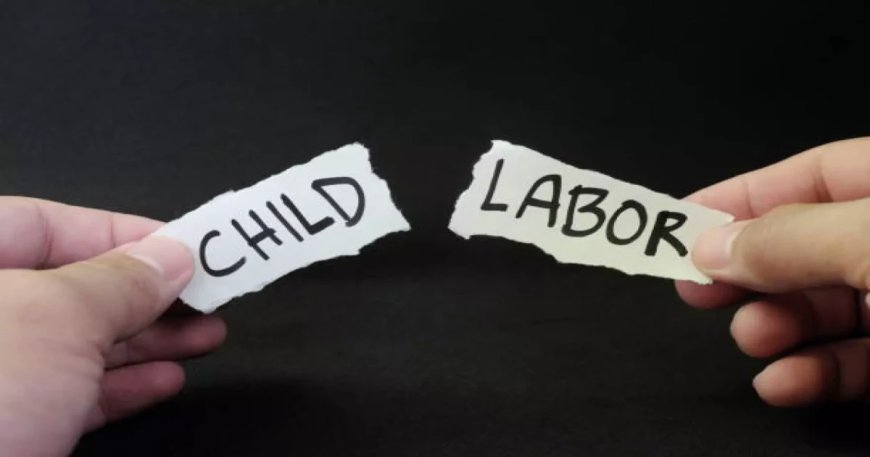Florida bill allowing parents to waive some child labor laws passes legislature
Florida bill allowing parents to waive some child labor laws passes legislature WUWF

Changes to Florida’s Child Labor Laws

The Senate approved a House bill on Thursday that brings changes to Florida’s child labor laws. The new legislation allows businesses to employ minors older than 16 years for more than 30 hours a week, provided they obtain parental permission through a state-sanctioned form. This bill has attracted significant public attention throughout the session, and the final version that passed is quite different from the initial proposal filed in September.
Original Proposal and Amendments
The original version of the bill aimed to allow minors aged 16 and older to work full-time without requiring parental input and removed the need for work breaks. Additionally, it would have permitted children to work past midnight on school nights. However, due to the strong opposition by Democrats in the house and numerous public comments opposing the bill, significant changes were made during the legislative process.
Republican Senator Danny Burgess from Zephyrhills played a crucial role in amending the bill to its final version. He expressed satisfaction with the outcome, stating, “Both provisions that are in the bill that we are hopefully about to pass out are proof positive that this is a process and that we listen along the way.”
Support and Concerns
The changes made to the bill earned an unexpected endorsement from the Florida AFL-CIO, which represents 500 labor unions in the state. Rich Templin, their lobbyist, thanked Senator Burgess for the amendments made during the bill’s last committee stop. However, Templin emphasized the importance of correct rulemaking by state executive agencies regarding the permission form.
Templin stated, “We intend to be there every step of the way, to help guide the process, to help make any changes to the labor law as good for our kids and our parents as we possibly can.”
Effective Date
If Governor Ron DeSantis does not veto the bill, it will take effect on July 1st, 2024.
SDGs, Targets, and Indicators
| SDGs | Targets | Indicators |
|---|---|---|
| SDG 8: Decent Work and Economic Growth | 8.7: Take immediate and effective measures to eradicate forced labor, end modern slavery and human trafficking, and secure the prohibition and elimination of the worst forms of child labor, including recruitment and use of child soldiers, and by 2025 end child labor in all its forms. | – No specific indicators mentioned in the article. |
| SDG 4: Quality Education | 4.4: By 2030, substantially increase the number of youth and adults who have relevant skills, including technical and vocational skills, for employment, decent jobs, and entrepreneurship. | – No specific indicators mentioned in the article. |
1. Which SDGs are addressed or connected to the issues highlighted in the article?
SDG 8: Decent Work and Economic Growth
The issues highlighted in the article are connected to SDG 8, which focuses on promoting sustained, inclusive, and sustainable economic growth, full and productive employment, and decent work for all. The article discusses changes to Florida’s child labor laws, which directly relate to the eradication of forced labor, modern slavery, and child labor.
SDG 4: Quality Education
The issues highlighted in the article also have a connection to SDG 4, which aims to ensure inclusive and equitable quality education and promote lifelong learning opportunities for all. The article mentions the potential impact of the changes to child labor laws on children’s education, as it may allow them to work more hours, including on school nights.
2. What specific targets under those SDGs can be identified based on the article’s content?
Target 8.7: Take immediate and effective measures to eradicate forced labor, end modern slavery and human trafficking, and secure the prohibition and elimination of the worst forms of child labor, including recruitment and use of child soldiers, and by 2025 end child labor in all its forms.
The article highlights changes to Florida’s child labor laws, which can be seen as an attempt to address the target of eradicating the worst forms of child labor and ending child labor in all its forms by 2025. The original version of the bill would have allowed minors 16 and older to work full-time without parental input, potentially increasing the risk of child labor.
Target 4.4: By 2030, substantially increase the number of youth and adults who have relevant skills, including technical and vocational skills, for employment, decent jobs, and entrepreneurship.
The article indirectly touches upon this target by mentioning the potential impact of increased working hours on children’s education. Allowing minors to work more than 30 hours a week, including on school nights, may affect their ability to acquire relevant skills and education necessary for employment and decent jobs.
3. Are there any indicators mentioned or implied in the article that can be used to measure progress towards the identified targets?
No specific indicators are mentioned or implied in the article that can be used to measure progress towards the identified targets. The article primarily focuses on the changes to Florida’s child labor laws and the opinions of various stakeholders regarding the bill.
Behold! This splendid article springs forth from the wellspring of knowledge, shaped by a wondrous proprietary AI technology that delved into a vast ocean of data, illuminating the path towards the Sustainable Development Goals. Remember that all rights are reserved by SDG Investors LLC, empowering us to champion progress together.
Source: wuwf.org

Join us, as fellow seekers of change, on a transformative journey at https://sdgtalks.ai/welcome, where you can become a member and actively contribute to shaping a brighter future.







